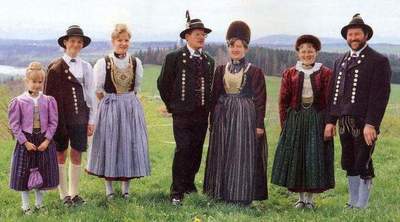Stereotypes in History: myths and reality
Is it true that in the Middle Ages lived poor and short-lived, Napoleon - shorty, and Mendeleyev - the godfather of alcoholics?
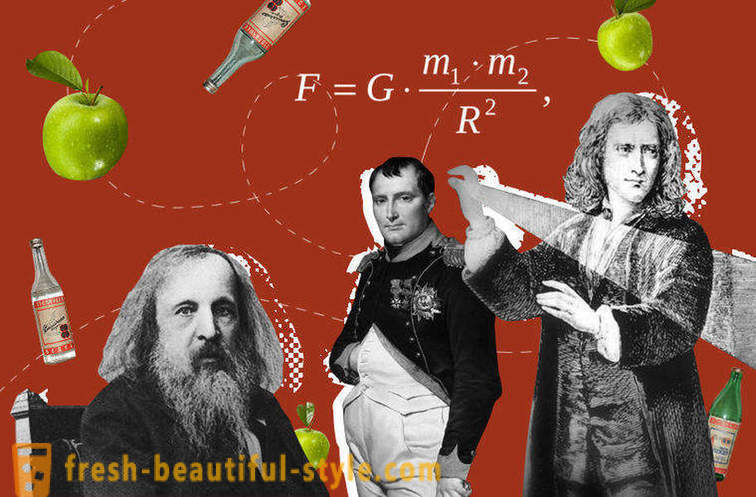
decrepit old man of 30 years
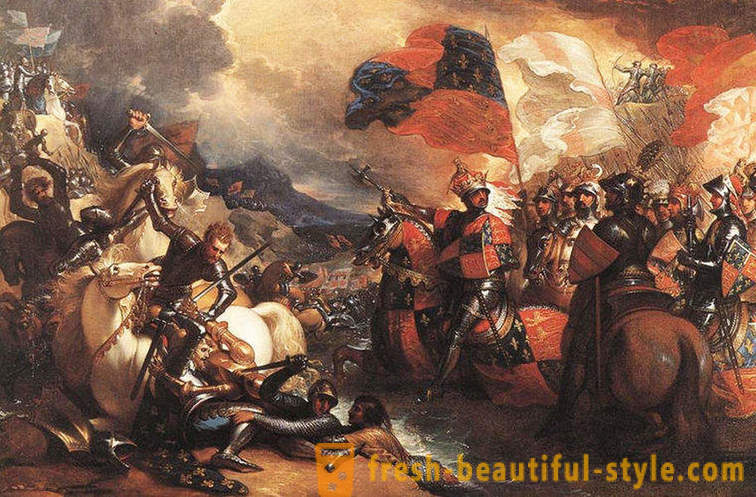
It is believed that in the Dark Ages, people hardly falls short of its own 30th anniversary because of the hardships of life, and this date was met decrepit old man. But the fatal 30 - notional figure is the average life expectancy, and she was so modest because of the high infant mortality rate. But if the man was lucky not to die of diphtheria and mumps, that his life was not shorter than today. For example, in England, of the XIV century by King Edward II 60-year-old man just dismissed from military service, of course, if the enemy is not finished off their peaks earlier. The demographic situation was not the same at different times - case of an epidemic, famine and war, costing thousands of lives, but not so often and everywhere, are considered today. And even with all these disasters the proportion of people over 50 has grown steadily since the XII century. And to the XIV-XV century in France has increased so much older age group, the politicians and the military over 70 were the norm rather than the exception.
The Arabic numerals - not Arabic

About the figures, which today enjoys almost the entire world, the Europeans learned from the works of Arab scholars. Meanwhile, the Arabs did not invent them, and borrowed from the Indians. The V century India appeared recording system consisting of nine digits 1 to 9, in which the number represented with lines and angles. The number of corners corresponds to the number of value: in the unit - a corner in nine - nine. But the real breakthrough was the introduction of the ground, which made it possible to conduct a written evaluation. Roman numerals for that did not fit and were only good for recording small numbers. Involuntary promoter of an advanced system of numbers became the first Arab mathematician Al-Khwarizmi, the author of work "Kitab al-Jabr wa-l-Muqabala", the name of which there was the familiar term "algebra" and then Pope Sylvester II of, who has studied the writings of Arab thinkers . Fully Arabic numbers in Europe have replaced Roman only in the XV century. In Russia, the transition took place much later - at the beginning of the XVIII century, before the country's use of Cyrillic counting system.
40-degree "mendeleevka"
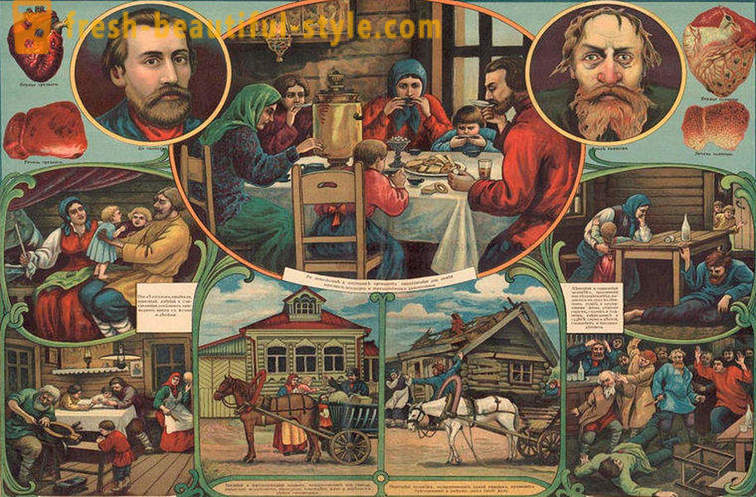
The great Russian chemist, actually wrote his thesis "Discourse on the combination of alcohol and water," but to vodka this work has nothing to do. Mendeleev studied taste characteristics of alcohol and water mixtures and their effect on humans. The dissertation is considered a very different problem: how to change the properties of aqueous alcohol solutions at various concentrations and environmental conditions. Special attention to solution volume alcohol content of 40% scientist also not paid to the invention and the 40-degree vodka entirely innocent.
Strong drink was known in Russia long before the birth of Mendeleev: vodka first mentioned in 1751, and before that a mixture of water and alcohol wine called simply. His strength was determined simple - a container with a hydroalcoholic solution ignited from above, and after burning were measured remaining amount of the beverage. Benchmark considered "Polugar" - he burnt out exactly half. In the middle of the XIX century there were alcoholmeters, then it turned out that Polugar fortress is 38%. But in order to facilitate the calculations on the sale of vodka as a standard accepted 40% - without the participation of the father of the periodic system.
to defame Salieri
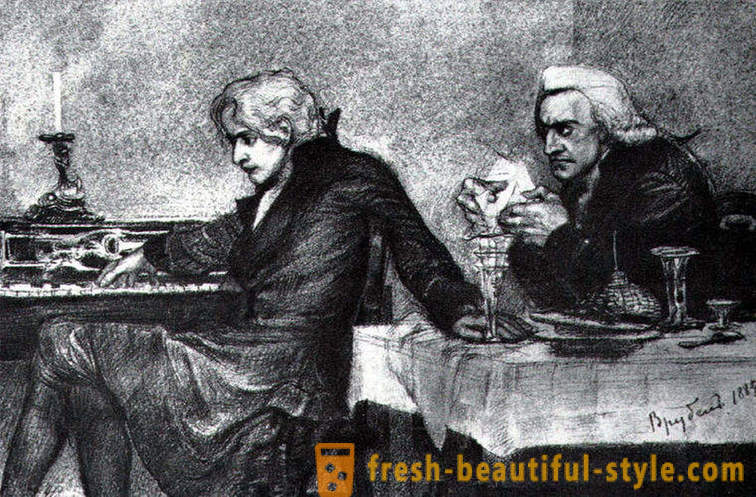
The image of the envious Salieri killing his talented opponent, which has become a stereotype with a light hand the Russian poet - is not nothing but a fiction. In "Little Tragedies" Pushkin assigns roles thus exploring the nature of passion, but it was all in life but rather the opposite. Composers are not competing: Salieri performed works by Mozart, Wolfgang Amadeus colleague waited for the premiere of "The Magic Flute". Anyway thank lifetime Mozart was not as great as the post-mortem, unlike laurels court composer Salieri, the famous and good living.
Reasons for bad feelings Mozart had more, but a symbol of black envy was Salieri's name. Lawyers and psychiatrists have even coined the term "Salieri Syndrome" - a crime committed on the grounds of professional jealousy. Composer justified only 200 years later in 1997, the Milan court found guilty Salieri.
Newton on the head of an apple fell

... and it is at that moment discovered the law of universal gravitation. This story was told his biographers Newton himself, but in his version there was no injury or sudden insight - only apple with an adjacent apple. And only 21 years later the scientist published his "Mathematical Principles of Natural Philosophy", which was described by the actual the law of gravity. There is even a version of that legend Newton invented on purpose - to justify to other famous scientist Robert Hooke, assert that Newton had stolen his idea of universal gravitation. Moreover, a number of biographers do not mention about any apple.
Two Napoleon growth
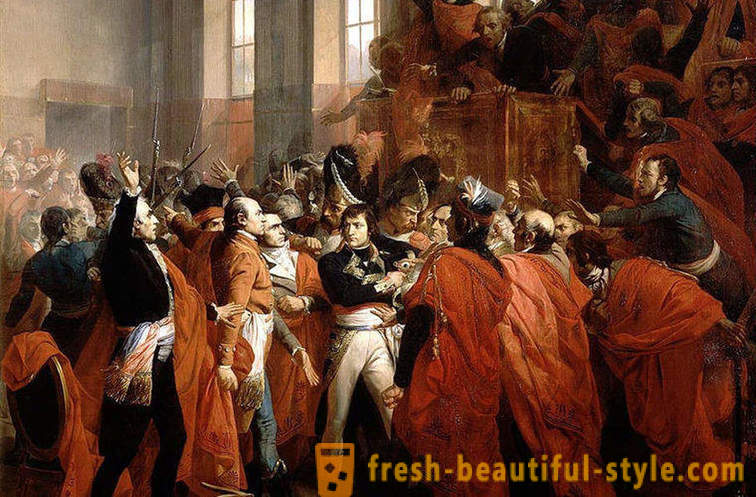
5 feet 2 inches - a lot or a little? It depends on how you count. If you convert to centimeters English feet, will total 157 cm, and if the French - 169 cm At the same time the average French at the time were in principle Monsieur middle-sized:. Soldiers took to the growth of 160 cm, and in 1804, the bar has dropped - to 154 4 cm.
Nevertheless, Napoleon seemed low - perhaps because of the disproportionately large head, slightly built and boyish appearance. After becoming commander of the Army of Italy, Bonaparte received the nickname Little Corporal - at that time he was only 26, and he looked even younger. Played a role and environment: on the background of tall marshals and guards the Emperor did not seem a large figure.
As for Napoleon complexes, they are hardly related to growth - its main enemy of the school was half a head lower. For experience has been a lot of other reasons: Corsican origin, the country name, bad French, poverty - that is what the future emperor teased at school, that's why he wanted to become better than others.
































